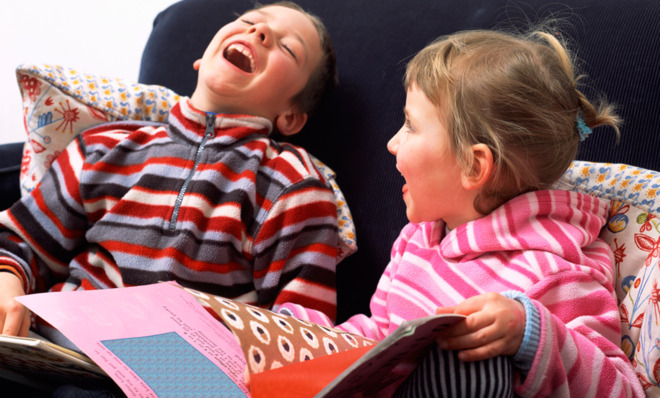11 little-known words for specific family members
Share this with your niblings


A free daily email with the biggest news stories of the day – and the best features from TheWeek.com
You are now subscribed
Your newsletter sign-up was successful
The words we use for family members in English are specific about some things, and vague about others. Our vocabulary marks a distinction between our mother and her sisters (some languages use one word for mother and maternal aunts), but doesn't say whether siblings are older or younger (some languages have different words for brother and sister depending on their age relative to you). We lack words that pick out particular family members (we have "cousin," but what about child-of-my-father's-brother?) as well as certain general terms (we have "siblings" for brothers and sisters, but what about nieces and nephews?).
If you look hard enough, you can find some words to help fill in the gaps. Here are 11 unusual English kinship words for family members.
1. PATRUEL
The Week
Escape your echo chamber. Get the facts behind the news, plus analysis from multiple perspectives.

Sign up for The Week's Free Newsletters
From our morning news briefing to a weekly Good News Newsletter, get the best of The Week delivered directly to your inbox.
From our morning news briefing to a weekly Good News Newsletter, get the best of The Week delivered directly to your inbox.
Child of your paternal uncle. Also, a child of your own brother. It hasn't gotten a lot of use in the past few centuries, but it was once convenient to have a term for this relationship because it factored into royal succession considerations. The first citation for it in the OED, from 1538, reads, "Efter his patruell deid withoutin contradictioun he wes king."
2. AVUNCLE
Your mother's brother. Latin distinguished between patruus, father's brother, and avunculus, mother's brother. (There was also amita, father's sister, and matertera, mother's sister.) It's the root of the word "avuncular," meaning "having to do with uncles" or "uncle-like" (i.e., kind and friendly, like an uncle). You won't find the word avuncle in the dictionary, but it has been used in anthropology texts and in papers concerning royal matters.
3. NIBLINGS
A free daily email with the biggest news stories of the day – and the best features from TheWeek.com
Your nieces and nephews. You won't find this in the dictionary either, but use of this term seems to be growing among aunts and uncles who want an easy way to refer to their little bundles of sibling-provided joy in a collective or gender-neutral way.
4. FADU
Your father's sister. Latin amita covers this relationship, but we don't have to reach that far back to find an English equivalent. Old English made a distinction between aunts and uncles depending on whether they were maternal or paternal. We lost all that when we borrowed the more general "aunt" and "uncle" from French.
5. MODRIGE
Your mother's sister. Old English.
6. FŒDRA
Your father's brother. Old English.
7. EAM
Your mother's brother. It survived in some dialects as "eme," with a more general meaning of uncle or friend, into the 19th century.
8. BROTHER-UTERINE
Your half-brother from the same mother. A term used in old legal documents or other discussions of inheritance and succession. Half-siblings of the same mother are "uterine" and of the same father are "consanguine."
9. BROTHER-GERMAN
Full brother, sharing both parents. Nothing to do with Germany. The "german" here is related to "germane," which originally meant "of the same parents" and later came to mean just related or relevant.
10. DOUBLE COUSIN
Full cousin, sharing all four grandparents. Comes about when a pair of sisters marries a pair of brothers.
11. MACHETONIM
The parents of your child's spouse. Your child's in-laws. Ok, this is a Yiddish word, but one that, like a lot of Yiddish words, has poked its way into English because it fills a gap. When it comes to marriage, this can be a very important relationship, so it’s good to have a word for it. If your parents get along with their machetonim, the family — the whole mishpocheh — will be happier.
Arika Okrent is editor-at-large at TheWeek.com and a frequent contributor to Mental Floss. She is the author of In the Land of Invented Languages, a history of the attempt to build a better language. She holds a doctorate in linguistics and a first-level certification in Klingon. Follow her on Twitter.
-
 Political cartoons for February 15
Political cartoons for February 15Cartoons Sunday's political cartoons include political ventriloquism, Europe in the middle, and more
-
 The broken water companies failing England and Wales
The broken water companies failing England and WalesExplainer With rising bills, deteriorating river health and a lack of investment, regulators face an uphill battle to stabilise the industry
-
 A thrilling foodie city in northern Japan
A thrilling foodie city in northern JapanThe Week Recommends The food scene here is ‘unspoilt’ and ‘fun’
